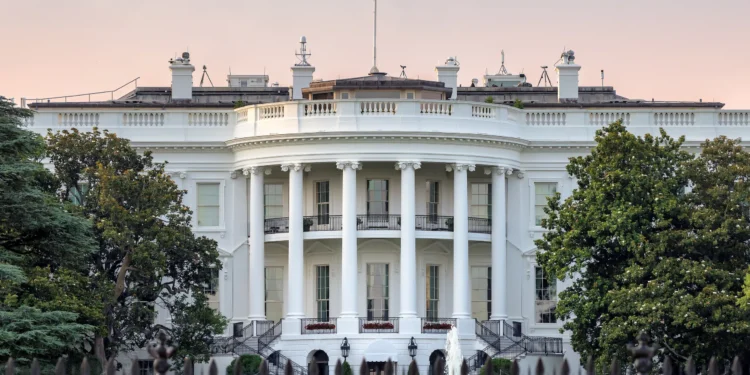The White House is exploring potential exemptions for physicians from the newly implemented $100,000 H-1B visa fee, just days after President Trump’s proclamation dramatically overhauled the skilled worker visa program.
“The Proclamation allows for potential exemptions, which can include physicians and medical residents,” White House spokesperson Taylor Rogers stated in an email statement.
The consideration comes after Trump’s presidential proclamation titled “Restriction on Entry of Certain Nonimmigrant Workers” took effect at 12:01 a.m. on September 21, 2025, imposing the steep fee increase that represents a massive jump from the current $2,000-5,000 range.
The immediate implementation prompted immigration attorneys and companies to advise H-1B holders currently outside the United States to return immediately or risk being stranded due to the prohibitive costs.
The fee increase has sparked concerns across multiple sectors, particularly affecting startups, small businesses, and Indian IT professionals who have historically relied on the H-1B program for skilled worker immigration.
Indian government officials expressed serious concern over the visa fee increase, describing it as a potential disruption for skilled Indian professionals and their families working in the United States. An official spokesperson said the full implications are being studied while noting that Indian industry has begun analyzing the program changes.
“Industry in both India and the US has a stake in innovation and creativity and can be expected to consult on the best path forward,” the government statement said, highlighting how talent mobility has contributed to technology development, innovation, and economic growth in both countries.
The proclamation’s impact extends beyond individual visa holders to affect broader immigration patterns and corporate hiring strategies. Companies that previously relied on H-1B workers for specialized roles now face substantially higher costs that could reshape their recruitment approaches.
Medical professionals represent a significant portion of H-1B visa recipients, with hospitals and healthcare systems often depending on foreign-trained physicians to fill critical staffing needs, particularly in underserved areas and specialized medical fields.
The potential physician exemption suggests the administration recognizes healthcare workforce needs while maintaining pressure on other industries, particularly technology companies that have historically been major H-1B program users.
Policymakers indicated they will assess the new measures considering mutual benefits between the United States and India, including strong people-to-people ties between the two countries.
The dramatic fee increase has raised questions about whether the change represents necessary program reform or a potentially damaging restriction on America’s ability to attract global talent in competitive technology and healthcare sectors.
Immigration law firms report increased consultations from companies and visa holders seeking guidance on navigating the new fee structure and potential exemptions.






